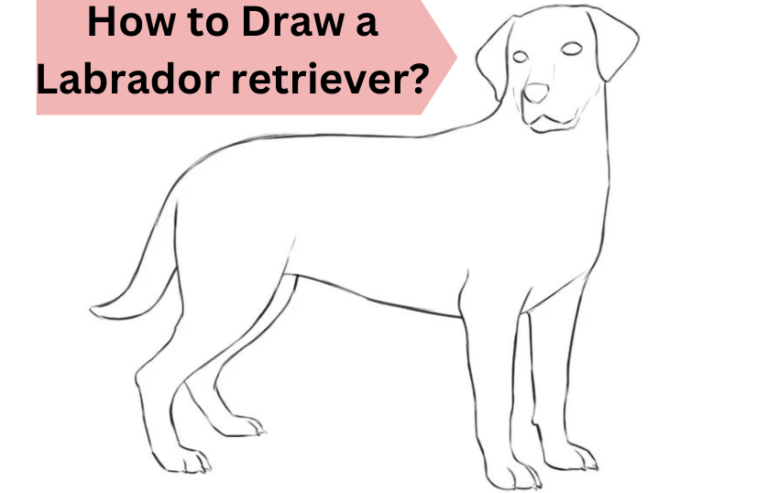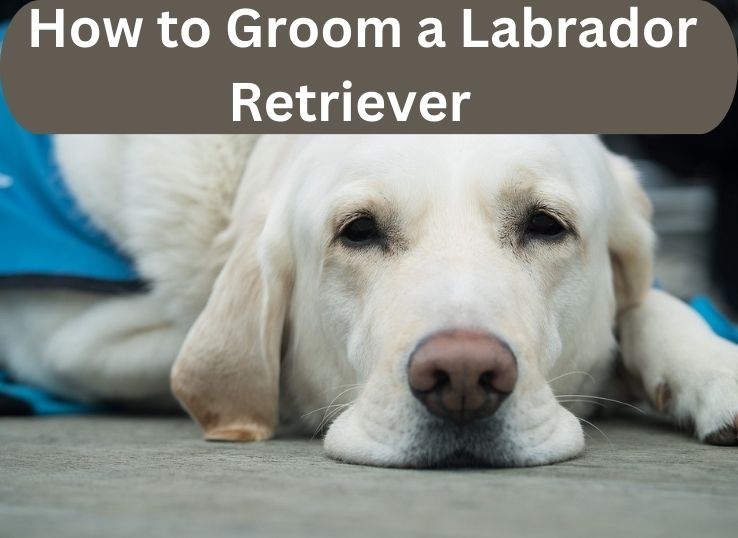How To Care for a Labrador Retriever in 2024

Labrador Retrievers are one of the most popular breeds in America, for good reason! They’re intelligent, loyal, gentle companions who make great family dogs. Caring for a Lab requires commitment and plenty of love, but with the proper guidance, it can be a gratifying experience. In this article, I will explain how to care for a Labrador Retriever, so he stays happy and healthy throughout its life.
From nutrition to exercise to general health maintenance, you will learn all about taking proper care of your beloved Lab pup. Keep reading to find out more!
Table of Contents
How To Care for a Labrador Retriever: Nutritional Requirements for Labrador Retrievers
Nutrition for Labrador Retrievers is vital to keeping them healthy and happy. It’s essential to provide your Lab with the correct food in the correct amounts and ensure they’re getting adequate hydration throughout the day. As much as Labs love their treats, it’s important not to over-treat them too often, or they risk becoming overweight from overeating!
When choosing a diet for your Lab, consider whether you’ll feed wet or dry dog food; both are suitable options depending on what suits your pup best. Wet foods can make more sense if your dog has specific dietary needs due to existing health conditions. In contrast, dry kibble is convenient and usually contains all of the essential vitamins and minerals most dogs require.
Additionally, look out for labels such as “complete”, indicating that all nutritional requirements have been met within the food. It’s also worth noting that puppies require higher protein levels than adult dogs do; when buying puppy food, check the label carefully to ensure this need is being met.
Exercise Requirements for Labrador Retrievers
Nutrition is a vital part of keeping your Labrador Retriever healthy and happy. Giving them the right balance of proteins, fats, carbohydrates, vitamins, minerals, and water will help ensure a long life filled with energy and joy. Now that you know what kind of diet to provide for your pup, it’s time to discuss the importance of exercise.
Just like humans, exercising regularly is essential for Labrador Retrievers. Combining physical activity and mental stimulation helps keep these active dogs fit and mentally stimulated.
Taking them on walks or hikes around the neighborhood can provide aerobic benefits while helping them build muscle mass. Playing fetch in the backyard or taking them swimming at a nearby lake are great activities too! Additionally, providing interactive toys such as Kongs can give them something fun to do when left alone during the day.
Grooming And Hygiene
Grooming and Hygiene for a Labrador Retriever are like combing the hair of a beloved child; it needs to be done gently but with confidence. A happy Lab will show appreciation through wagging tails and love-filled eyes, moments that can make every pet parent’s heart swell with joy. That being said, regular grooming sessions are essential in keeping your pup healthy and looking their best.
Brush your Lab’s coat at least once a week using soft bristled brushes or combs. This helps remove dirt, reduce tangles, and keep their fur from matting while distributing skin oils along the length of the fur shaft. Bathing should also be done regularly, about twice a month, to keep them clean as well as smelling nice. Use warm water and mild shampoo specifically formulated for dogs when bathing your pooch.
Taking care of your Labrador Retriever’s nails is also important; clip them short if they become long enough to click on hard floor surfaces, and check their ears weekly for signs of infection, such as an unpleasant smell or excessive wax buildup.
With proper attention paid towards these hygiene needs, you’ll have one fabulous furry friend ready for anything life throws their way! Ready to move on to training and socialization? Let’s go!
Training And Socialization
Training and socialization are vital in the care of a Labrador Retriever. Training should begin at an early age to establish good habits, such as responding to commands like sit, stay, come, etc. Positive reinforcement is important when teaching these commands; rewards like treats or verbal praise can be effective incentives for your dog.
Socializing your Lab with other people and animals is also key: take them on walks around the neighborhood or bring them to parks to meet new friends!
Health Care Needs

Caring for a Labrador Retriever is like having an incredibly loyal shadow. They are great family pets and will follow you everywhere, so keeping them healthy is important. While their coats may look like they require little maintenance, there are still some healthcare needs that owners should be aware of.
To properly care for your Labrador Retriever:
- Provide plenty of exercise
- Feed a balanced diet with appropriate snacks
- Maintain regular vet visits and vaccinations
- Ensure proper dental hygiene
Common Health Issues
Labrador Retrievers are generally a very healthy breed, but as with any dog, they can be prone to certain health issues. Common issues for Labradors include hip dysplasia, eye disorders such as progressive retinal atrophy and cataracts, skin allergies, hypothyroidism and elbow dysplasia. While these conditions will vary from mild to severe, all should be taken seriously if symptoms become evident.
It is important to regularly groom your Labrador Retriever by brushing the coat several times per week and checking for signs of parasites or infections around the eyes, nose and ears. Regularly inspect their paws for cuts or redness that may indicate infection; monthly nail trims should also help prevent further complications.
Owners must also provide their Labs with proper nutrition so they maintain an optimal weight and healthy diet throughout their life span.
4 Tips for Keeping Your Labrador Happy and Healthy
Caring for your Labrador Retriever doesn’t have to be a hassle. You can ensure your pup remains happy and healthy with a few simple tips. Here are some suggestions to keep in mind:
Make sure they get plenty of exercise: take them out on walks or runs at least twice a day
Give them lots of affection: Labs love attention, so give them plenty of hugs and belly rubs!
Provide them with proper nutrition: Feed them high-quality food and avoid giving too many treats, which could lead to obesity.
Schedule regular vet visits: It is important to stay up-to-date on vaccinations and checkups for any potential health issues.
These are just a few basic guidelines when caring for your Lab. A good rule of thumb is always to treat your pet like family; give them the same amount of love and care that you would any other member of the household. By following these steps, you’ll be able to provide your furry friend with all the necessities they need for a long, happy life.
Frequently Asked Questions: How to Care for a Labrador Retriever
Are There Any Special Dietary Requirements for Labrador Retrievers?
Labrador retrievers have strong appetites and need a balanced diet to maintain their health. While they can eat most foods, there are some dietary requirements that should be followed. It’s important to provide them with high-quality protein sources such as lean meats, eggs, and fish. Additionally, carbohydrates like potatoes or rice will help your pup get the energy it needs for its daily activities.
How Much Exercise Does a Labrador Retriever Need Each Day?
Labrador Retrievers are active dogs that need plenty of exercise each day. Depending on the age and health of your lab, they should get at least 30 minutes to an hour of activity every day.
Conclusion: How to Care for a Labrador Retriever
It is important to remember that each Labrador Retriever is unique, and their needs may vary. For example, some Labs may need more exercise than others or require a special diet for health reasons. Taking the time to understand the individual requirements of your Lab will go a long way in providing them with a safe and happy home.






